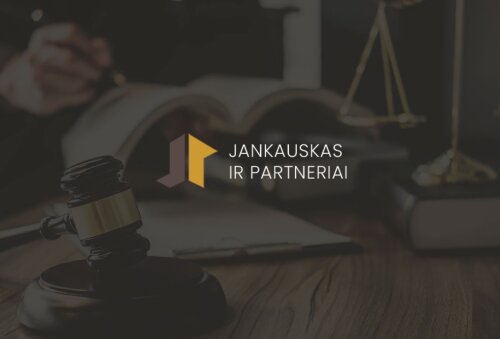Best Adoption Lawyers in Kaunas
Share your needs with us, get contacted by law firms.
Free. Takes 2 min.
Free Guide to Hiring a Family Lawyer
List of the best lawyers in Kaunas, Republic of Lithuania
About Adoption Law in Kaunas, Republic of Lithuania
Adoption is a legal process that establishes a permanent parent-child relationship between individuals who are not biologically related. In Kaunas, Republic of Lithuania, adoption is regulated by national laws and is designed to protect the best interests of the child while ensuring that adoptive parents meet specific requirements. The process is overseen by relevant governmental institutions and courts, ensuring that the rights of all parties are observed. Adoption can be pursued by Lithuanian citizens, as well as by foreign nationals under certain conditions.
Why You May Need a Lawyer
Adopting a child is a life-changing legal procedure involving complex regulations and potential challenges. You may require legal assistance in the following situations:
- Understanding the eligibility criteria for adoption in Lithuania
- Navigating the documentation and formal application process
- Handling potential disputes or concerns from biological parents or guardians
- Ensuring compliance with international adoption requirements
- Protecting the rights and interests of the child throughout the process
- Overcoming language barriers or interpreting legal terminology
- Appealing a denied adoption application
Local Laws Overview
Adoption in Kaunas, as in the rest of Lithuania, is governed by the Civil Code and related regulations. Key aspects of adoption law include:
- Eligibility: Applicants must be at least 18 years old and generally at least 18 years older than the adopted child. Married couples and single individuals can adopt, subject to certain conditions.
- Best Interests of the Child: Lithuanian law prioritizes the welfare of the child. Adoption is considered only if it serves the child’s best interests and no suitable care is available within the biological family.
- Consent: Consent from both biological parents or legal guardians is typically required, except in rare situations where parental rights have been terminated.
- Local and International Adoption: Both domestic and international adoptions are possible. International adoption requires compliance with Lithuanian laws and, in some cases, international conventions like the Hague Convention.
- Court Approval: All adoptions must be approved by the court. The court assesses suitability, the relationship to the child, and other relevant factors before making a decision.
- Post-Adoption Support: Various forms of support and counseling are available for adoptive families through government and non-government organizations.
Frequently Asked Questions
Who is eligible to adopt a child in Kaunas, Republic of Lithuania?
Lithuanian citizens and, under certain conditions, foreign nationals can adopt. Applicants must fulfill age and suitability requirements as stated in Lithuanian laws.
Can single individuals adopt a child in Lithuania?
Yes, single individuals may adopt, though married couples are generally preferred. Suitability is assessed on a case-by-case basis.
Do the biological parents have to give consent for adoption?
Typically, both biological parents or legal guardians must consent, unless they are deceased, unknown, or have lost parental rights.
How long does the adoption process usually take?
The timeline can vary, but the process normally takes several months to over a year, depending on individual circumstances and any legal complexities.
Can foreign citizens adopt a child from Lithuania?
Yes, foreign nationals can adopt, but strict eligibility criteria apply. International adopters must work through accredited agencies and follow both Lithuanian law and relevant international treaties.
What documents are required for adoption?
Required documents may include proof of identity, proof of income, medical evaluations, home studies, and background checks. Courts may request additional documentation during the process.
Is it possible to adopt a relative’s child in Kaunas?
Yes, relative adoption (kinship adoption) is possible and sometimes prioritized if it serves the best interests of the child.
What role do the courts play in the adoption process?
Courts review and approve all adoptions, ensuring legal requirements are met and decisions align with the child’s best interests.
Is post-adoption support available for adoptive families?
Yes, adoptive families have access to counseling, support services, and assistance programs from governmental and non-governmental organizations.
Can an adoption decision be appealed?
Yes, if the court rejects an adoption application, the decision can be appealed according to Lithuanian legal procedures.
Additional Resources
Several organizations and institutions provide support and information about adoption in Kaunas and Lithuania:
- State Child Rights Protection and Adoption Service under the Ministry of Social Security and Labour
- Kaunas City Municipality Child Protection and Welfare Departments
- Licensed family support and counseling centers
- Legal aid centers offering consultations on family law matters
Next Steps
If you are considering adoption or need legal help with any aspect of the process in Kaunas, it is recommended to take the following steps:
- Start by gathering all necessary personal and financial documentation
- Consult the relevant governmental or municipal child protection offices for official guidance
- Contact a lawyer specializing in family and adoption law to ensure that you understand your rights and obligations and that the process proceeds smoothly
- Prepare for possible interviews, home studies, and court hearings
- Stay informed about support services and post-adoption resources available to you and your family
Professional legal assistance can help clarify complex legal requirements, facilitate communication with authorities, and increase your chances of a successful adoption process.
Lawzana helps you find the best lawyers and law firms in Kaunas through a curated and pre-screened list of qualified legal professionals. Our platform offers rankings and detailed profiles of attorneys and law firms, allowing you to compare based on practice areas, including Adoption, experience, and client feedback.
Each profile includes a description of the firm's areas of practice, client reviews, team members and partners, year of establishment, spoken languages, office locations, contact information, social media presence, and any published articles or resources. Most firms on our platform speak English and are experienced in both local and international legal matters.
Get a quote from top-rated law firms in Kaunas, Republic of Lithuania — quickly, securely, and without unnecessary hassle.
Disclaimer:
The information provided on this page is for general informational purposes only and does not constitute legal advice. While we strive to ensure the accuracy and relevance of the content, legal information may change over time, and interpretations of the law can vary. You should always consult with a qualified legal professional for advice specific to your situation.
We disclaim all liability for actions taken or not taken based on the content of this page. If you believe any information is incorrect or outdated, please contact us, and we will review and update it where appropriate.
















